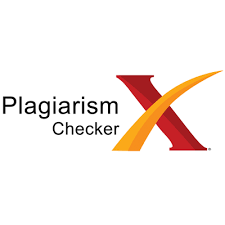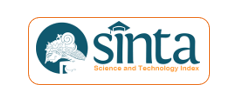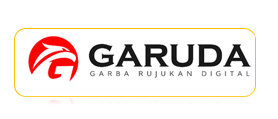PENGARUH MODEL PEMBELAJARAN PROJECT-BASED LEARNING TERINTEGRASI TPACK TERHADAP KEMAMPUAN BERPIKIR KRITIS PADA MATERI SEJARAH
Abstract
Abstract: This research aims to determine the effect of applying the Project-Based Learning (PBL) learning model integrated with the TPACK (Technological Pedagogical Content Knowledge) framework in history learning. The research design used in this research is quasi experimental with Non-equivalent Control Group Design. The selection of subjects using cluster random sampling so that two classes (control and experimental) were obtained with a total of 72 subjects. The experimental class was taught using the TPACK integrated PBL learning model while the control class used PBL learning. Comparison of student understanding is measured based on pretest and posttest results. Data collection used a critical thinking ability test instrument totaling 20 multiple choice questions. The results showed that the experimental class had better critical thinking skills than the control class.
Abstrak: Penelitian ini bertujuan untuk mengetahui pengaruh penerapan model pembelajaran Project-Based Learning (PBL) terintegrasi dengan kerangka TPACK (Technological Pedagogical Content Knowledge) dalam pembelajaran sejarah. Rancangan penelitian yang digunakan dalam penelitian ini adalah quasi experimental dengan desain Non-equivalen Control Group Desain. Pemilihan subjek menggunakan cluster random sampling sehingga diperoleh dua kelas (kontrol dan eksperimen) dengan total subjek sebanyak 72 orang. Pada kelas eksperimen dibelajarkan dengan menggunakan model pembelajaran PBL terintegrasi TPACK sedangkan kelas kontrol digunakan pembelajaran PBL. Perbandingan pemahaman siswa diukur berdasarkan hasil pretest dan posttest. Pengumpulan data menggunakan instrumen tes kemampuan berpikir kritis berjumlah 20 soal pilihan ganda. Hasil penelitian menunjukkan bahwa kelas ekperimen memiliki kemampuan berpikir kritis lebih baik dibanding kelas kontrol.
Keywords
Full Text:
PDFReferences
Barry, K., & King, L. (2004). Beginning Teaching A Development Text for Effective Teaching. Sociel Science Press (January 1, 1989).
Bell, S. (2010) . Project-Based Learning for the 21st Century: Skills for the Future. The Clearing House, 83(2), 39–43.
Blumenfeld, P. C., Kempler, T., & Krajcik, J. (1991). Motivating Project-Based Learning: Sustaining the Doing, Supporting the Learning. Educational Psychologist, 26(3), 369–398.
Filsaime, D. K. (2008). Menguak Rahasia Berpikir Kritis dan Kreatif. Jakarta: Prestasi Pusaka.
Fisher (2008). Berpikir Kritis sebuah Pengantar. Jakarta: Erlangga.
Harris, J., & Hofer, M. (2011). Technological Pedagogical Content Knowledge (TPACK): A Framework for Teacher Knowledge. In Handbook of Technological Pedagogical Content Knowledge (TPACK) for Educators. Routledge, 40–61.
Hattie, J. (2009). Visible Learning: A Synthesis of Over 800 Meta-Analyses Relating to Achievement. Routledge.
Mishra, P., & Koehler, M. J. (2006). Technological Pedagogical Content Knowledge: A Framework for Teacher Knowledge. Teachers College Record, 108(6), 1017–1054.
Sugiyono (2012). Metode Penelitian Kuantitatif, Kualitatif, dan R&D. Bandung: Alfabeta.
Sukardi, A. (2020). Pendidikan Abad 21: Membangun Keterampilan dan Kompetensi Siswa di Era Digital. Jakarta: Penerbit Pendidikan.
Sullivan, E. C. (2007). Character education in the gymnasium: Teaching more than the physical. Journal of Education, 187(3), pp. 85–102.
Thomas, J. W. (2000). A Review of Research on Project-Based Learning. California: The Autodesk Foundation.
DOI: http://dx.doi.org/10.17977/um0330v7i2p289-300
Refbacks
- There are currently no refbacks.

This work is licensed under a Creative Commons Attribution-ShareAlike 4.0 International License.
Editorial office:
History Department, Faculty of Social Science,
Universitas Negeri Malang
Jl. Semarang No.5 Kota Malang 65145,
Phone. (0341) 551312,
email: jpsi@um.ac.id
Website: http://journal2.um.ac.id/index.php/sejarah/index
E-ISSN 2622-1837

This work is licensed under a CC BY SA 4.0.








